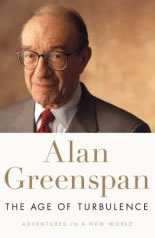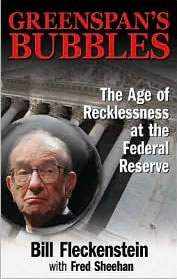The Bernanke Interest Rate Cycle, Age of Turbulence and Pavlov's Dog
Interest-Rates / US Economy Nov 30, 2007 - 05:40 AM GMTBy: Tim_Iacono
Well, the big news yesterday was that Federal Reserve Vice Chairman Donald Kohn "opened the door" to more interest rate cuts by the Fed and, as a result, equities rallied.
Like Pavlov's dogs it seems.
Since there are about twelve days remaining before the next FOMC meeting, what is likely to happen next is that you'll hear a mixed message from some other Fed head (maybe William Poole tomorrow), some doubt will be cast on the Fed's next move, and stocks will sink again.
Then, sometime next week, maybe after a bad labor report on Friday, it will become clear that the Fed will indeed cut short-term rates on December 11th so stocks will again rally
And then, right around the time of the actual policy announcement from the Fed, stocks will begin to sink again.
The Bernanke Cycle , created here a while back, will be revised along with incoming data as this process repeats another ten times over the next year or so, each time with less and less effect on equity markets. Throw in a half-point rate cut (maybe two) somewhere along the line and that should put short-term rates below two percent by this time next year - they'll still be calling for a bottom in housing and people might once again start depositing their brokerage statements in the trash, unopened, every three months.
A year or so from now, it might be a lot like 2001 all again - the election will be over, the economy will be in dire straits and, as an added twist, China's great "coming out" party at the Beijing Olympics will be just a memory. The Asian giant might then turn a little ornery towards the rest of the world after its big party is over and internal problems begin to boil over a bit.
 That's the way it looks here - it all seems kind of inevitable, unavoidable.
That's the way it looks here - it all seems kind of inevitable, unavoidable.
We'll see.
What was more remarkable than anything else in Donald Kohn's speech yesterday was the use of the word "turbulence".
By my count, this word appeared seven times in the speech and just so happens to be in the title of the former Fed Chairman's latest best-seller, "Alan Greenspan - The Age of Turbulence" (sorry, no link - haven't read it, don't recommend it).
Yesterday Donald Kohn used phrases like, "the consequences of the recent turbulence in financial markets" and "developments in housing and mortgage markets are a root cause of the financial market turbulence" and "should the elevated turbulence persist" when, all of a sudden, it struck me that this was the wrong word for Alan Greenspan's book and a horribly wrong word to describe what is happening in financial markets today.
The use of the word "turbulence" conjures up an image of a solidly constructed aircraft that is making its way through uncertain and rapidly changing weather conditions that the airplane clearly had not created.
 This is completely opposite of what Alan Greenspan did when he sat in the big chair at the Federal Reserve, helping to create money and credit on scales never seen before.
This is completely opposite of what Alan Greenspan did when he sat in the big chair at the Federal Reserve, helping to create money and credit on scales never seen before.
The "turbulence", both then and now, was facilitated and encouraged by easy money policies over many, many years which are now coming home to roost.
How does Donald Kohn get off talking about "turbulence" in financial markets as some sort of external event which the Fed had no hand in creating?
A more apt analogy might be a ship at sea in northern waters that manufactures icebergs and hurls them into its own path and then tries to avoid hitting them.
Surely "turbulence" is the wrong word.
Maybe Bill Fleckenstein's new book - Greenspan's Bubbles will help clarify the use of the word in the former Fed Chairman's book and its now unseemly use by Federal Reserve members today.
We'll see - look for it in bookstores in January.
By Tim Iacono
Email : mailto:tim@iaconoresearch.com
http://www.iaconoresearch.com
http://themessthatgreenspanmade.blogspot.com/
Tim Iacano is an engineer by profession, with a keen understanding of human nature, his study of economics and financial markets began in earnest in the late 1990s - this is where it has led. he is self taught and self sufficient - analyst, writer, webmaster, marketer, bill-collector, and bill-payer. This is intended to be a long-term operation where the only items that will ever be offered for sale to the public are subscriptions to his service and books that he plans to write in the years ahead.
Tim Iacono Archive |
© 2005-2022 http://www.MarketOracle.co.uk - The Market Oracle is a FREE Daily Financial Markets Analysis & Forecasting online publication.



